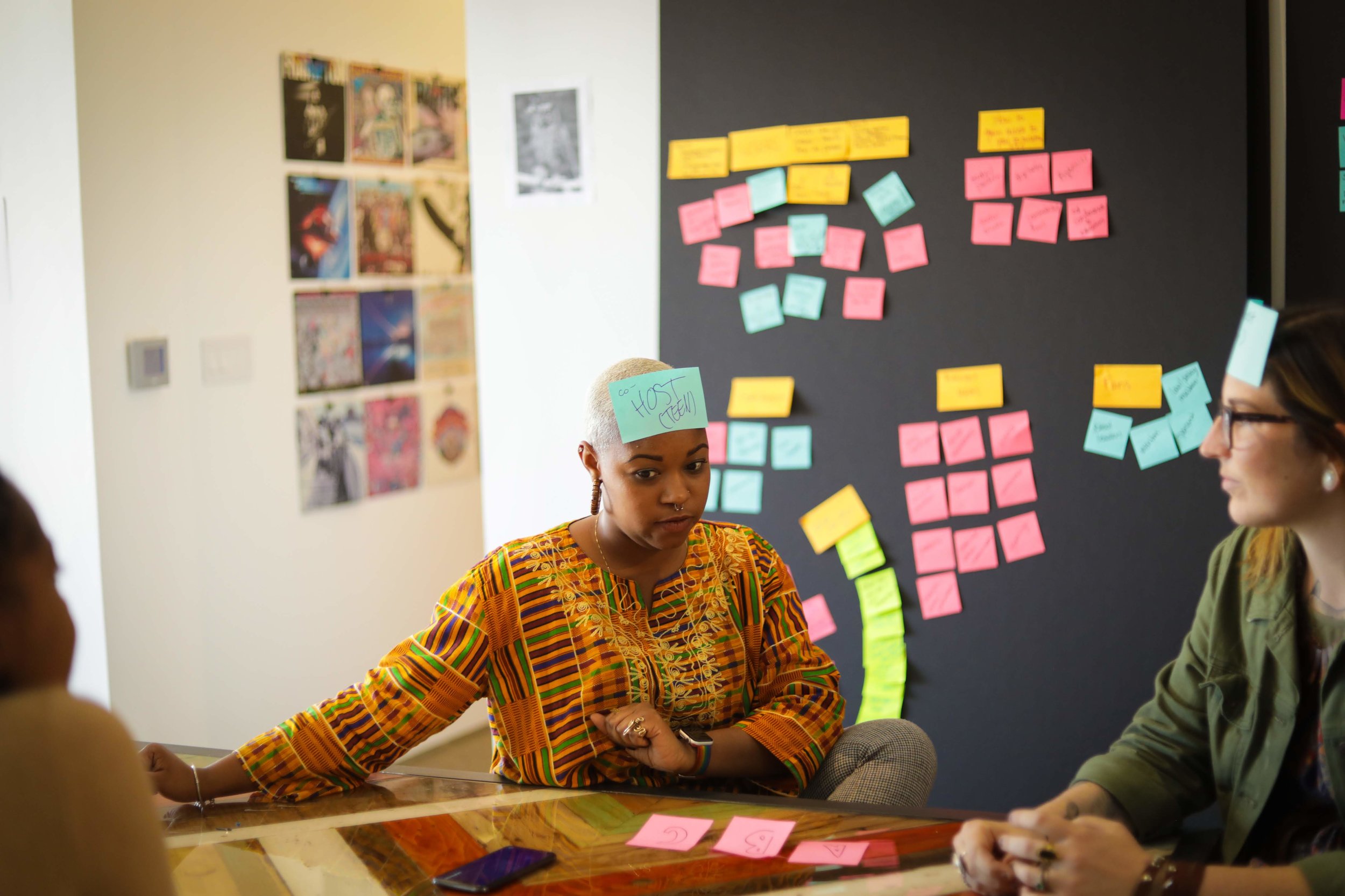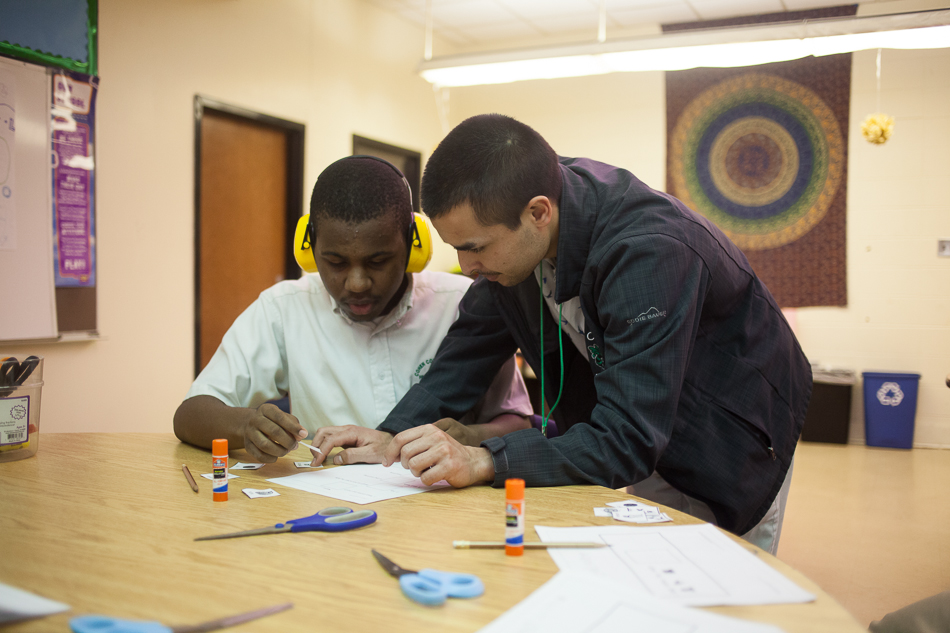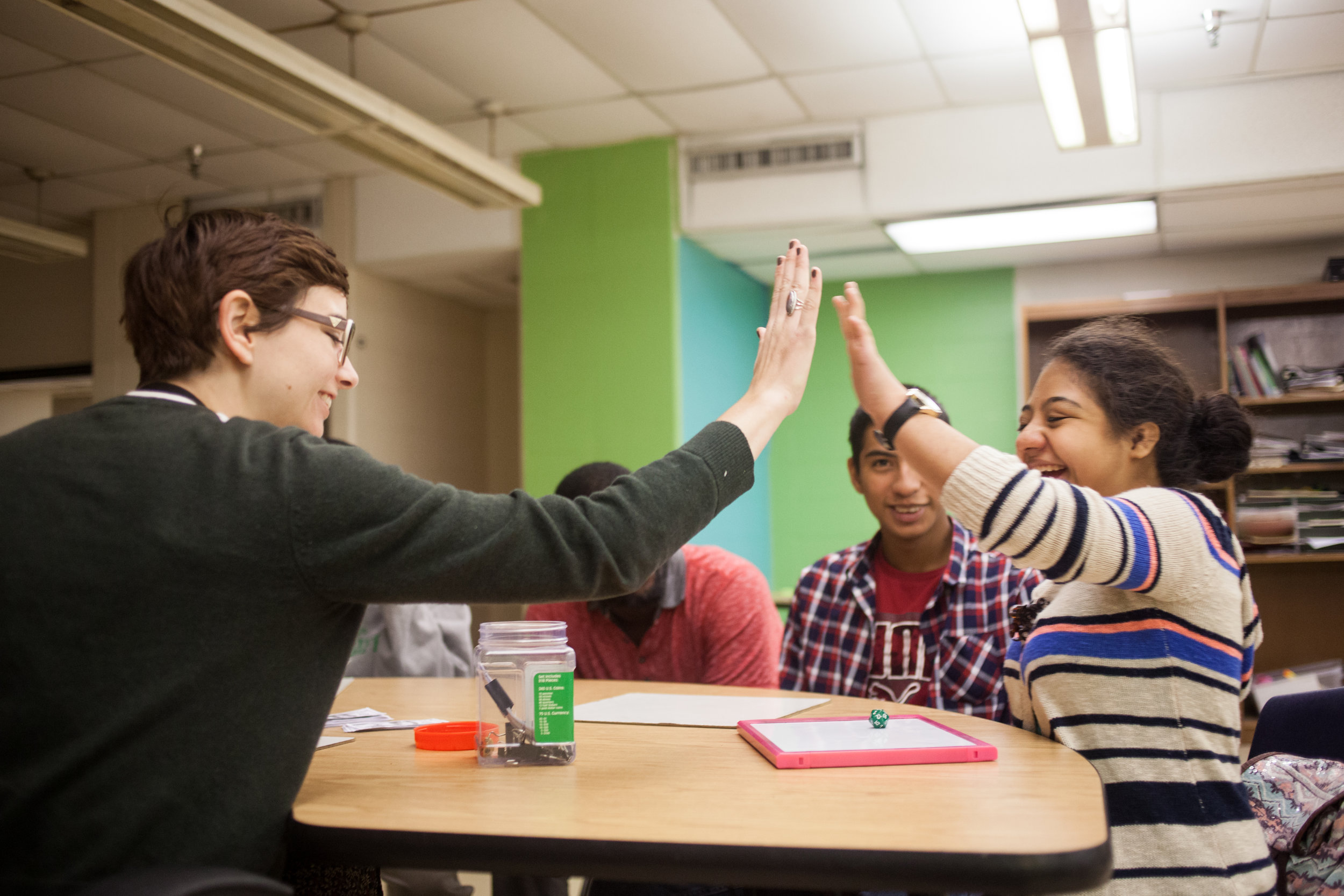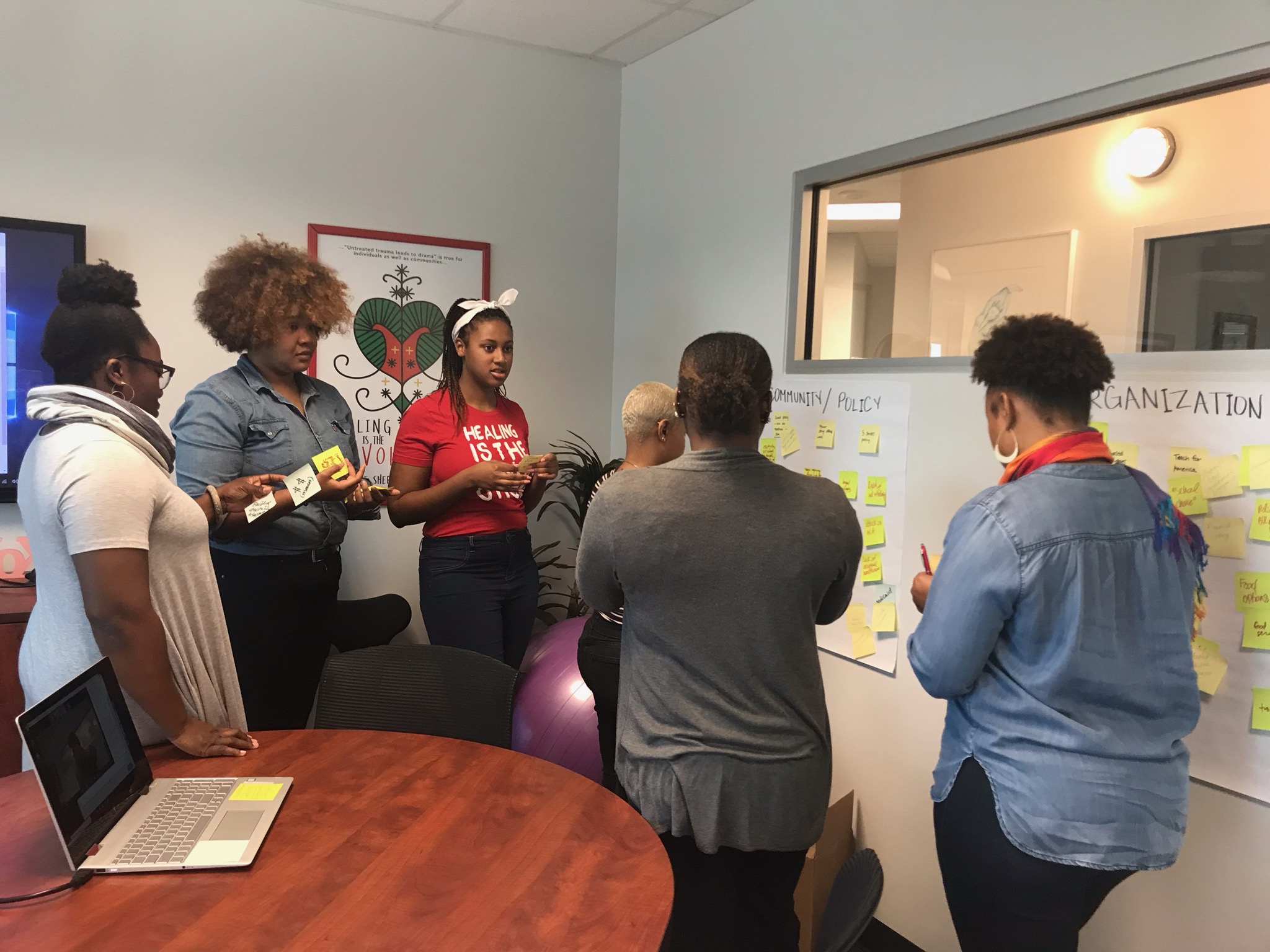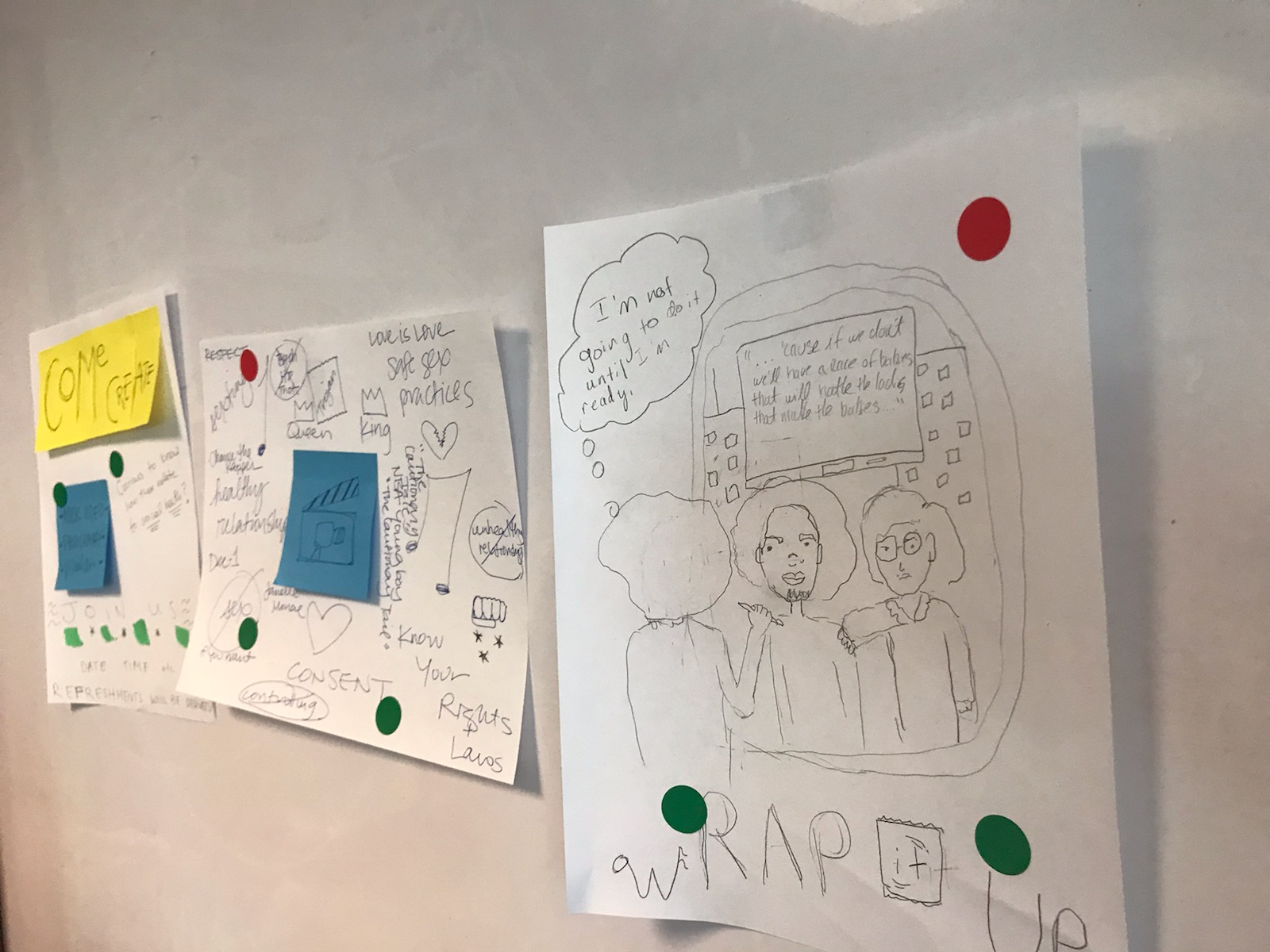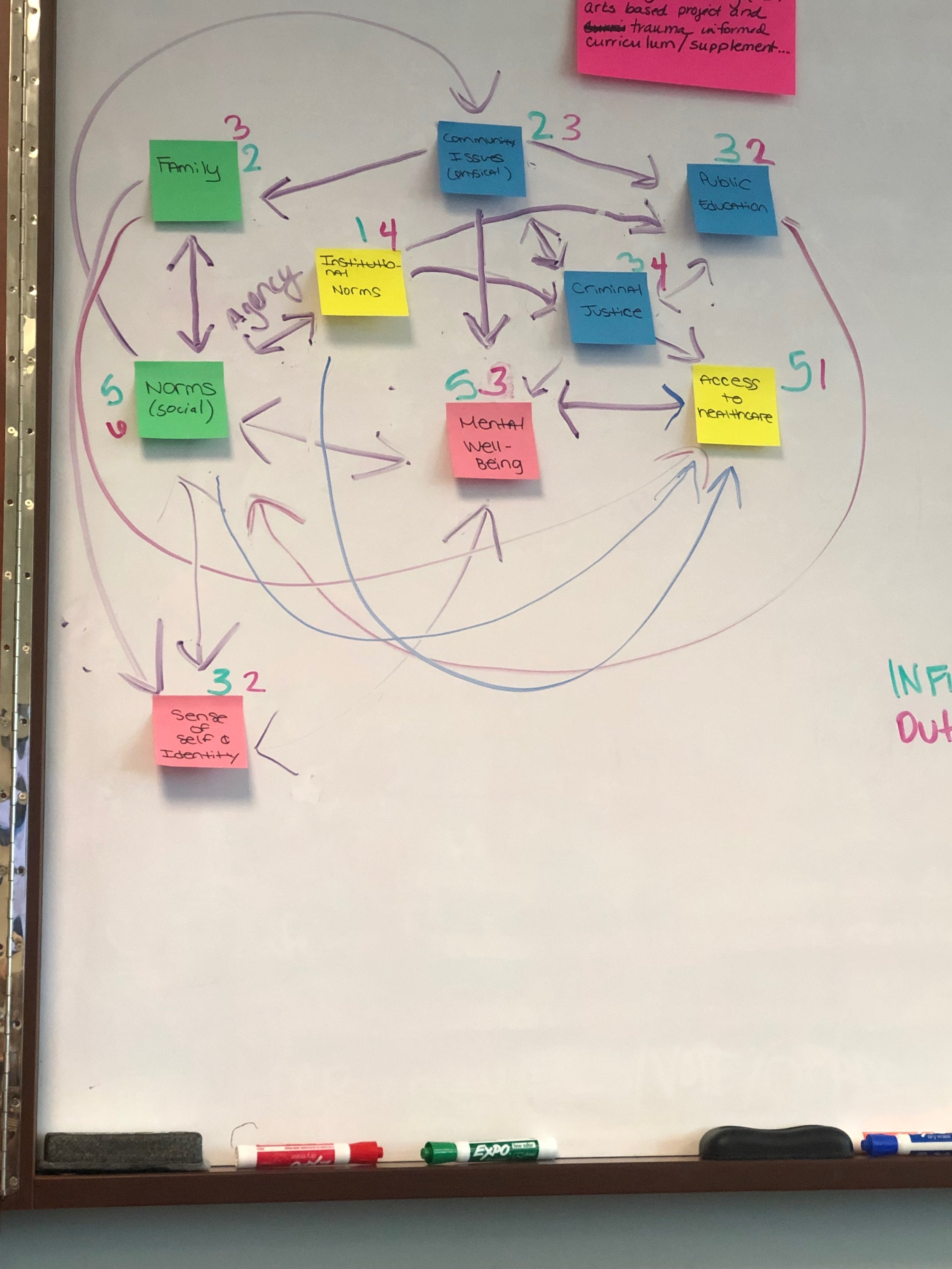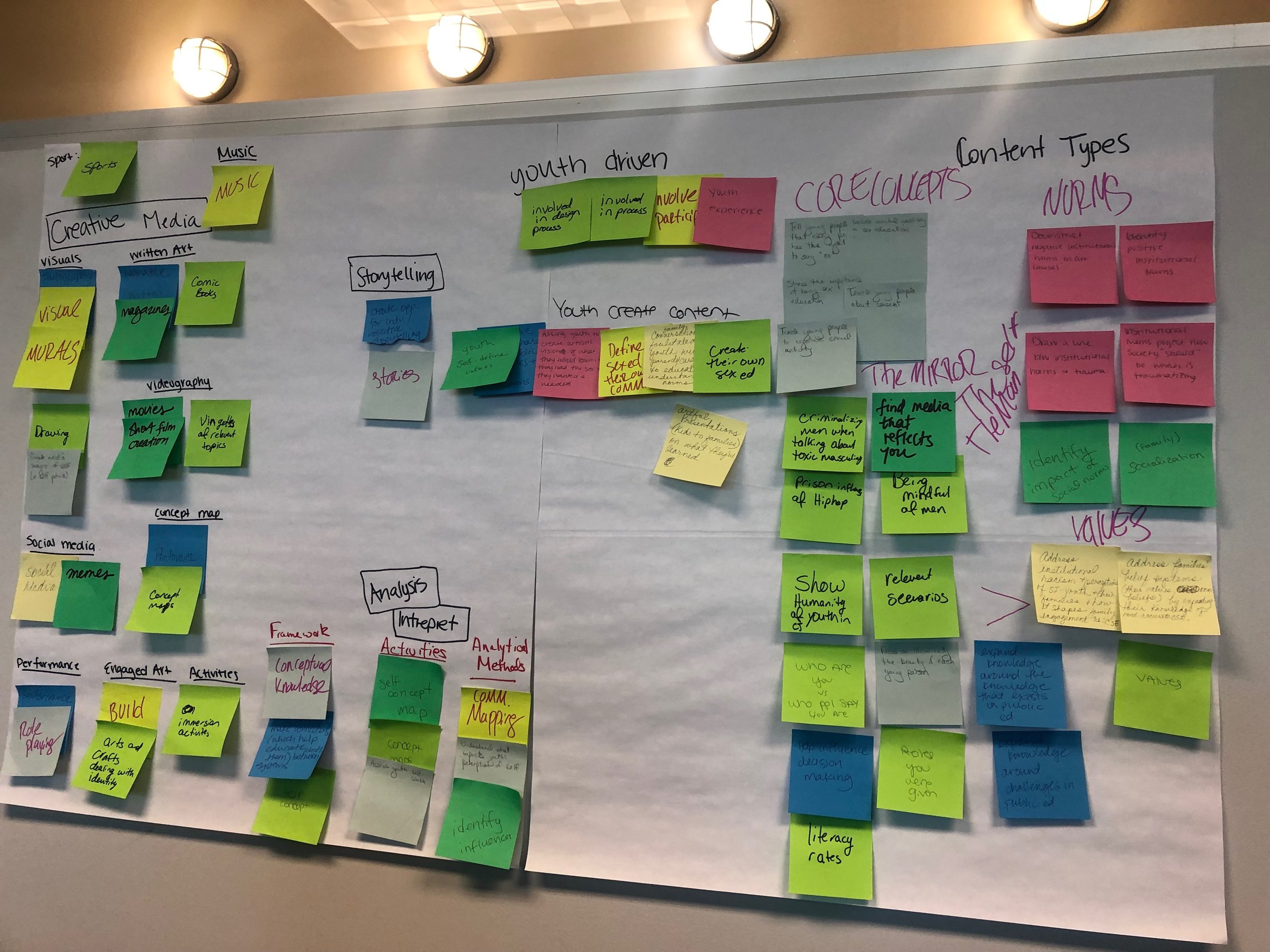Innovation at IWES!
Here at IWES we have always kept the communities we work alongside at the center of our work. Black and Brown people are both the core and the catalyst for the programming we do in New Orleans and beyond. By working with the community we are able to deeply involve our people in our process—from community advisory boards to parent committees. This year, thanks to experts in human-centered design thinking, we are granted the opportunity to take this philosophy to new heights. In partnership with Texas A&M University and Power to Decide, IWES is propelling into the next wave of program design in teen pregnancy prevention.
What is it?
Human-centered design sounds exactly like what it is; it’s a strategy for designing programs and projects that are informed by the very people we impact. The problem with “community work” is that, more often than not, the folks who do the “work” are not part of the community, nor do they take the time necessary to learn the community and its needs. Instead, we witness top-down approaches to people who live and work on the ground. If we truly believe that the soul of a community lies in the voice of a people (and we really should), then people cannot be left on the peripheral when it comes to decision-making. Human-centered design challenges the very manner in which we think about problems entirely. It releases power from the “professionals” to be absorbed by the soil and planted where it’ll grow best. By taking a step back we are able to reimagine what it means to be for the people. Ponder for a moment, who decided that the essential “problems” guiding your work are even problems at all?
How is it done?
By talking to people! In human-centered design we call this phase empathy. By immersing ourselves in experiences and dialogue with our intended audience or target population, we learn from them their needs, desires and challenges. This means that more time is spent defining the problem, but it only makes the work even more meaningful and impactful. Then comes the part we all love, ideas! Ideating allows us the freedom to draw inspiration from practically anywhere and place it somewhere tangible—like a post-it! One post-it per idea is standard, they help to separate, organize and change ideas (and ideas will change). Prototyping and Testing potential solutions is essential to the process. The process of human-centered design, like life, isn’t linear, solutions and even problems are refined and reimagined throughout. Imagine if the solution to a critical social problem was treated like a science experiment and you will be able to get a feel of what it’s like to delve into human-centered design.
What’s happening at IWES?
Innovation Next, A project of Power to Decide
The IWES team joins a cohort of five groups from across the nation working to innovate adolescent health through human-centered design and technology. This project was driven by a partnership between IWES and the Academy of Career and Community Education (ACCE) at Cohen College Prep.
The near absence of sexual health education for students with intellectual disabilities inspired Jason Foster (IWES), Sheryl-Amber Edmondson (IWES) and Nikki Mayeux (Cohen College Prep), to journey towards a solution to this fundamental public health problem. The team is working to build a technological product that will address the disparity in access/accessibility to sex education among students with intellectual disabilities and their neurotypical peers.
iTP3, A project at Texas A&M University
iTP3 takes a slightly different approach. This project sits between design-thinking and systems-thinking by the logic that our work, undeniably, exists within a set of systems we are bound to operate within and throughout. By deconstructing these systems, we have generated a logic model for this project that is both innovative and feasible. IWES has partnered with the Welcoming Project to develop a sexual health program for systems-involved youth. The IWES team (Iman Shervington, Sheryl-Amber Edmondson and Christina Illarmo), along with the Welcoming Project (Sarah Omojola and Candace Williams), is challenged to integrate big picture ideas into one comprehensive solution that addresses the needs of formerly incarcerated youth in New Orleans.
The Lesson
People are greater than the process, and they are more than the problem.
Stay tuned for updates on our final solutions!
